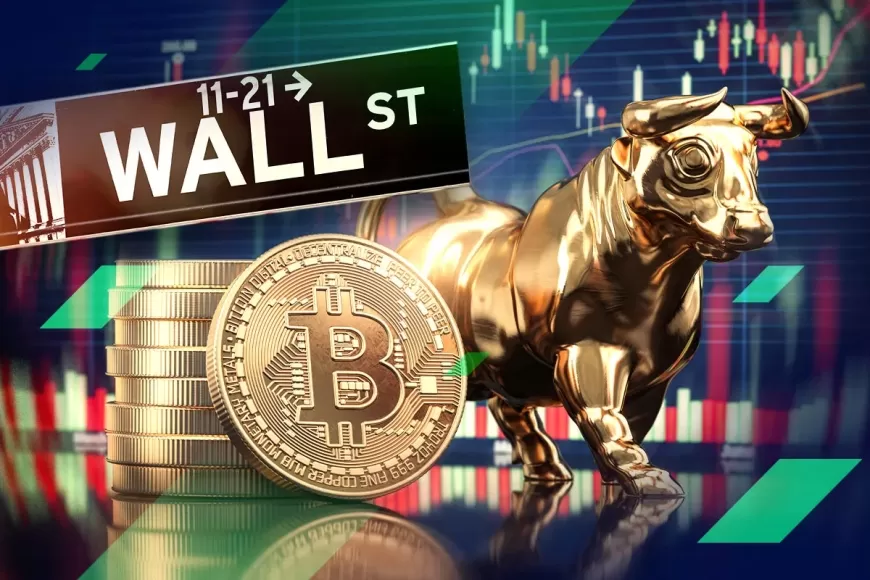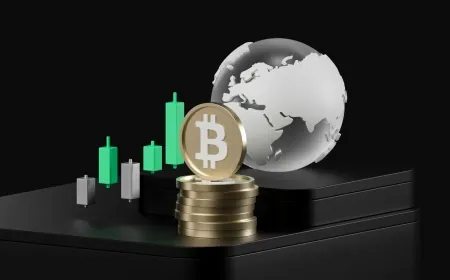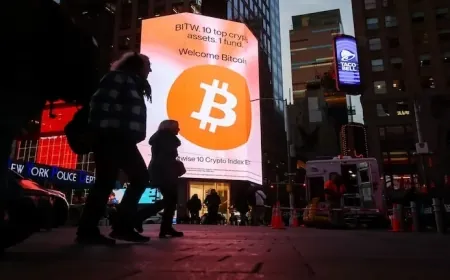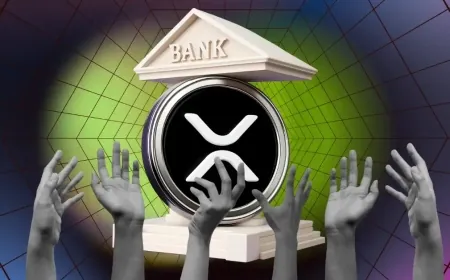Tokenization Becomes Wall Street’s New Favorite Crypto Trend
Wall Street is adopting tokenization, with firms like BlackRock and Visa using blockchain to transform asset markets and improve liquidity.

The excitement around tokenization has intensified as Bitcoin's resurgence draws attention to blockchain's potential. Tokenization, which refers to converting real-world assets into digital tokens on a blockchain, has become a major topic of discussion both in traditional finance and cryptocurrency circles. The ability to create digital representations of assets could pave the way for faster transactions, increased market liquidity, and broader investor access to various asset classes.
However, the tokenization space is still in its early stages, struggling to achieve widespread adoption. According to rwa.xyz, only about 67,530 institutional investors are involved in tokenized assets, which account for just a fraction of global assets. Despite the buzz, many tokenization projects are under financial pressure, with some companies close to folding.
Regulatory Challenges and New Opportunities
For years, the tokenization of assets beyond stablecoins has faced obstacles, primarily due to the uncertain regulatory landscape. U.S. regulators have often lumped tokenized securities in with cryptocurrencies, despite their clear distinction from digital currencies. The cautious stance from authorities has led many financial institutions to shy away from blockchain-based assets, fearing more stringent regulations. This regulatory ambiguity caused many players in the finance industry to focus instead on other technological advancements like AI, avoiding tokenization-related risks.
But the tide seems to be turning. The Trump administration’s focus on creating a more favorable regulatory environment for cryptocurrencies and blockchain projects has breathed new life into tokenization. The BlackRock move earlier this year, launching a tokenized money-market fund, marks a significant shift toward acceptance. BlackRock’s push signals that major financial players are now ready to embrace tokenization.
Big Firms Paving the Way
The shift in attitude is already driving key players to innovate. Visa recently rolled out a platform to allow banks to issue fiat-based tokens. Mastercard followed suit, linking its token network with JPMorgan Chase’s blockchain platform, Kinexys, which is already processing over $2 billion in daily transactions. These moves show that tokenization isn’t just a niche trend but is being integrated into the broader financial ecosystem.
Mastercard’s Raj Dhamodharan pointed out, “We’re seeing a trend that’s here to stay. This technology is going to open up a host of new business models.” It’s clear that major companies are no longer waiting but are jumping in with both feet, helping to drive tokenization forward.
Tokenized Funds and Liquidity Potential
Tokenization could also have a significant impact on traditional investment vehicles. Experts predict that tokenized assets under management could rise to $600 billion by 2030, up from just $2 billion today. The growing interest in tokenized money-market funds, many of which focus on U.S. Treasuries, highlights this potential. Tokenized assets are also being explored as collateral by financial regulators like the Commodity Futures Trading Commission (CFTC), signaling an acceptance of blockchain-based assets in more traditional financial systems.
Broadridge’s Rob Krugman believes the transformative potential of tokenization goes beyond market accessibility. "Tokenization might even be bigger than the internet in terms of fundamentally changing how markets work," he said. With the promise of making assets more liquid and cutting transaction costs, tokenization could open up new opportunities for a broader base of investors.
Concerns About Risk and Asset Quality
Despite the growing optimism, some in the industry are wary of the rapid expansion of tokenization. Nathan Allman, CEO of Ondo Finance, cautions that not all assets are suitable for tokenization. He notes that the rush to digitize assets could lead to poorly priced and subpar products entering the market, exposing investors to unnecessary risks.
Similarly, Carlos Domingo of Securitize remains skeptical about tokenizing real estate, suggesting that the complexity and regulatory challenges of this market make it a questionable fit for blockchain technology at this time. For others, like Noelle Acheson, the idea of tokenizing private equity also feels unnecessary, as the current model works for many private companies that limit equity ownership to select investors.
While these concerns are valid, the programmable nature of blockchain could actually help mitigate some of the risks. By adding more automation to tokenized transactions, assets can be put into escrow, ensuring greater security and reducing the chances of fraud.
Tokenization’s Growing Role in the Financial Ecosystem
While tokenization still faces hurdles, the shift in regulatory stance, the backing of major financial firms, and the potential for greater liquidity and efficiency in the market make it an exciting development. The next few years will be critical in determining whether tokenization can live up to its promise or if it will continue to face growing pains in its journey to mainstream adoption.
With blockchain technology and tokenization, the financial industry could be heading toward a future where assets are more fluid, accessible, and secure. However, only time will tell if the hype will match the reality.
Also Read: SHK Token Price Prediction: Why SHK Could Be a Smart Investment for the Future































































